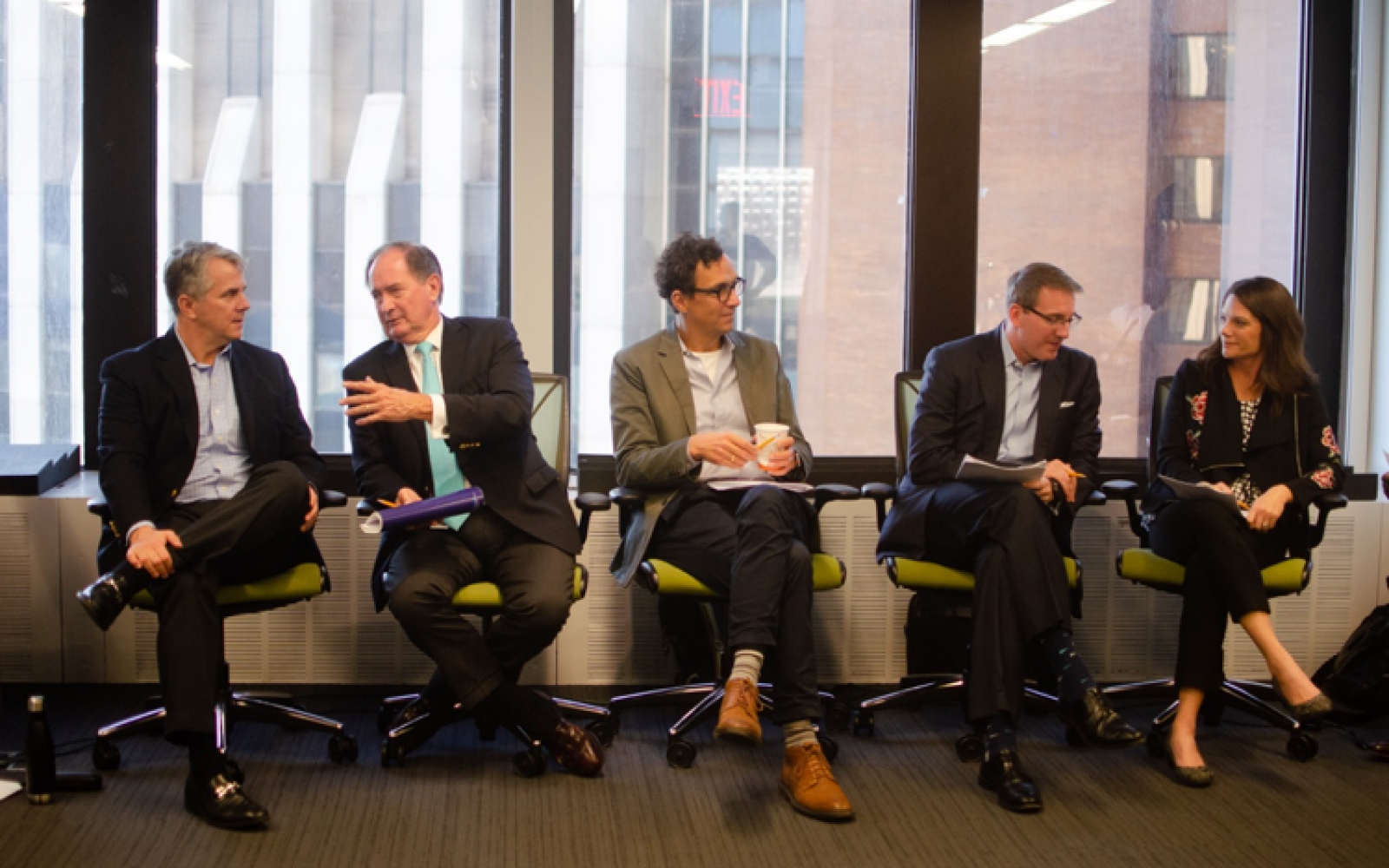Earlier this year, Ashoka and QBE launched the Urban Resilience Challenge, a competition designed to identify pioneering tech start-ups that are preparing cities across the U.S. to respond to social, economic, and physical risks.
On Oct. 23, 2019, the ten finalists convened at QBE’s North America headquarters in the nation’s largest metropolis — New York City — to pitch their ideas in person and connect with fellow innovators and QBE employees.
Innovators presented five-minute pitches and fielded questions from a panel of QBE executives and social entrepreneurs, who judged each solution on its innovation, impact, sustainability, and relevance to the insurance industry. Ideas ranged from reimagining recycling, to transforming the electric grid, to predicting car crashes.
Today we’re excited to announce winners of the $75,000 first-place prize and $25,000 second-place prize. Read on to discover the stories behind these start-ups and their world-changing visions.
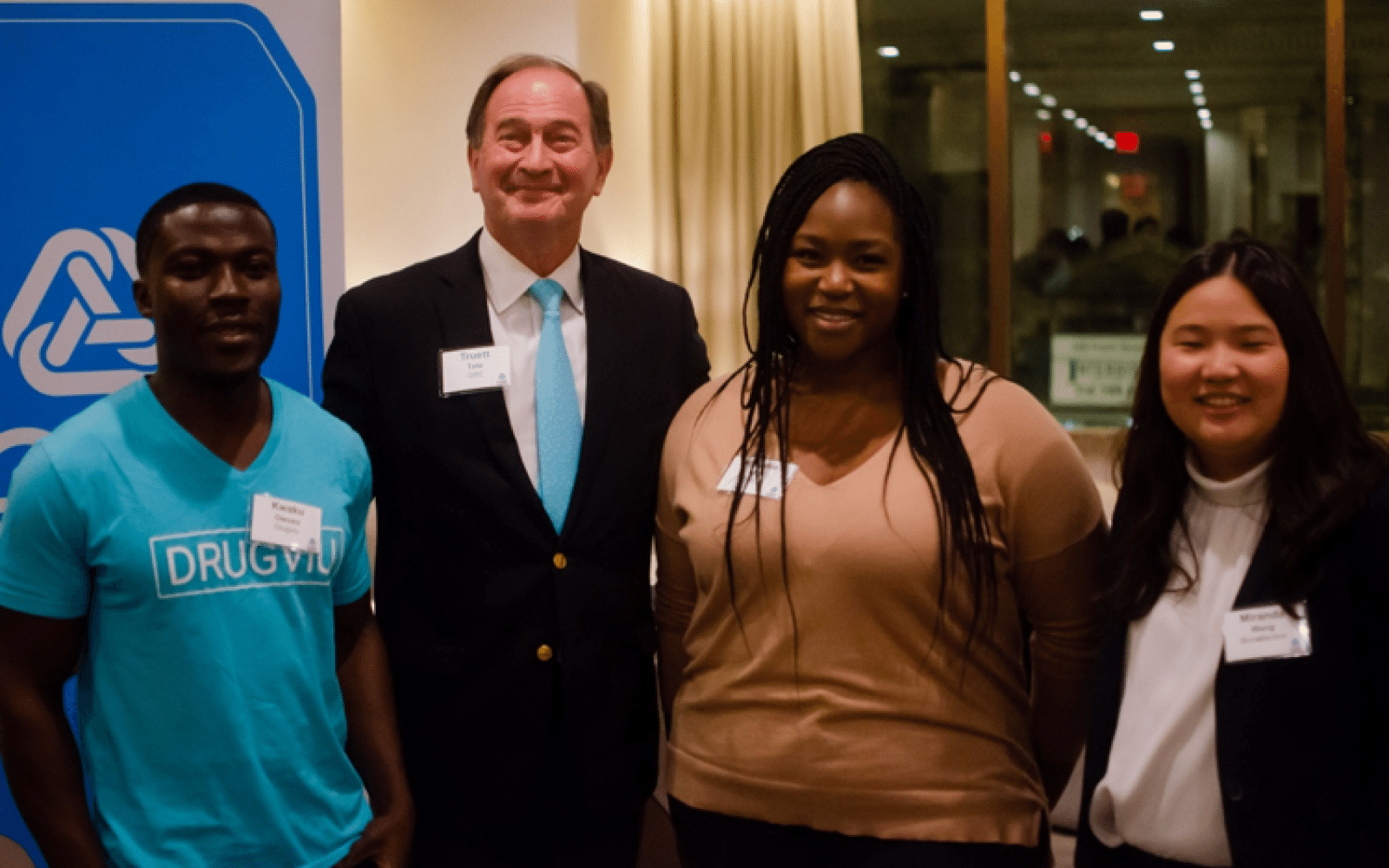
Urban Resilience Champion: Drugviu
First-prize winner Drugviu is on a mission to make medication safe and equitable by providing communities of color with accurate data. Historically, clinical trials have left out communities of color. This injustice creates a serious health risk, as medications affect communities in different, even dangerous, ways.
Co-founder Melanie Igwe remembered when her father experienced adverse reactions to his post-stroke medications due, in part, to the lack of medical data. She knew he wasn’t the only one.
For co-founder Kwaku Owusu, the catalyst came in 2016, when he was running a medical device optimization software company and learned how different people can experience different outcomes for the same medication.
“These people are not studied in medical research and I am a member of that community!” he said. “Eventually I’m going to take a medicine or my kid is going to take a medicine. We decided to do something about it."
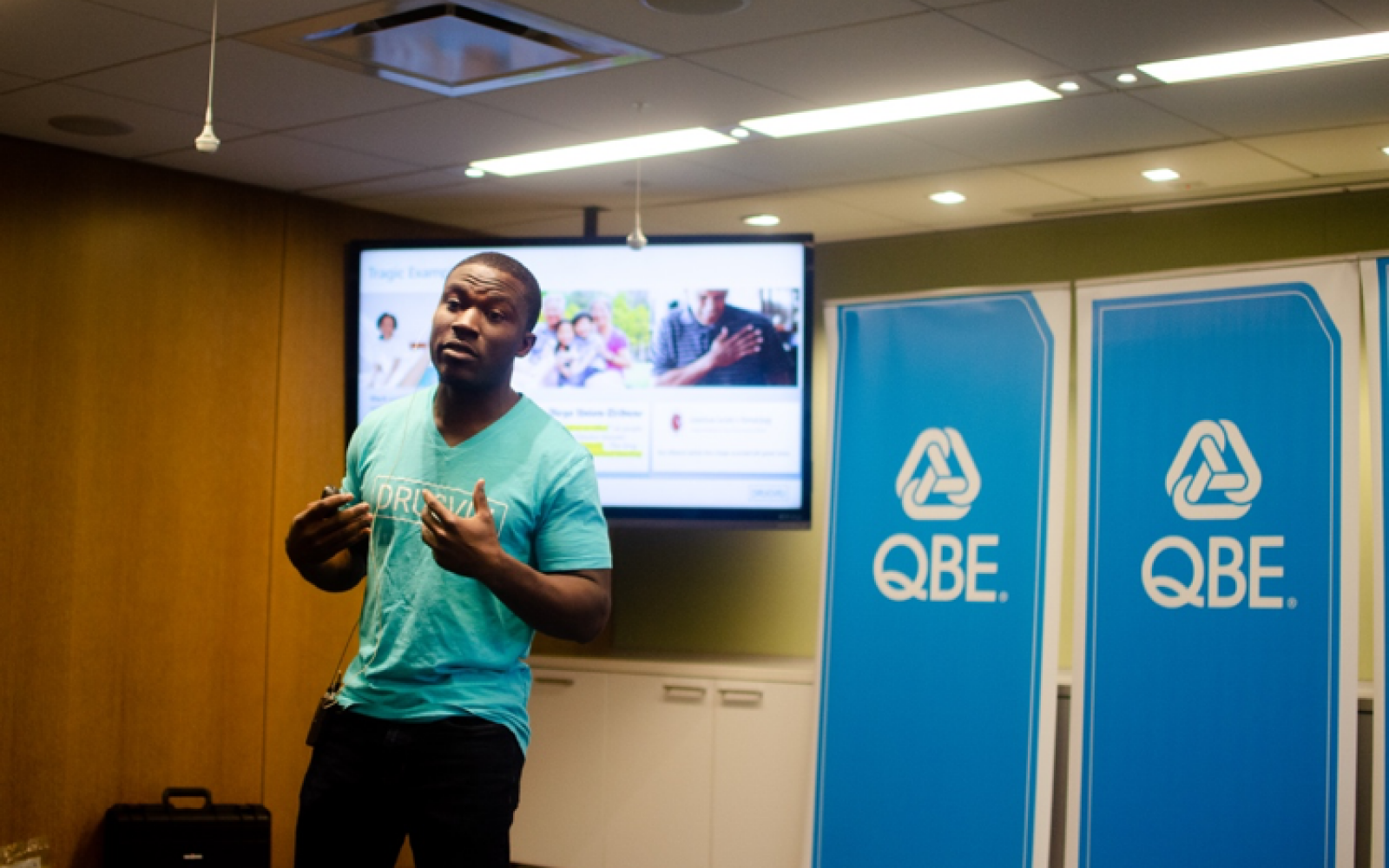
Initially, Drugviu depended on on-the-ground community outreach to collect data, partnering with clinics, churches, and colleges, and now the Drugviu website allows people of color to submit information about their medication experiences and find information about how medications have affected others.
Combining online reviews with pharmacist expertise and FDA data, Drugviu provides patients with public information and physicians and pharma companies with data via paid subscriptions.
“I’m very appreciative of winning this prize,” Kwaku said. “Our vision is to build a world where medications work for everyone. This is going to propel us to do that much faster, and it’s going to help guide us in our mission of building that world where everyone is included in conversations.”
"Drugviu has set the standard for innovation and urban resilience. This initiative boldly addresses one of our most pressing societal challenges and moves us closer to sustainable, thriving cities,” said Tim Scheu, Director of Partnership Management on Ashoka’s Global Partnerships Team. “We are grateful to be collaborating with QBE North America to support Drugviu as they develop their idea and grow their impact."
Melanie said that the challenge’s learning component, which included webinars and covered subjects like “systems change,” has influenced the company’s aproach.
“What was so great about this whole process is really understanding systems thinking and then using that and integrating that into our business,” Melanie said. “There are so many different stakeholders that, in order for real change to happen, everyone has to be included.”
Drugviu, which has documented 25,000 real world health outcomes, aims to achieve over 100,000 outcomes, then start sourcing genomic data from underserved populations. The prize will help them to accelerate more rapidly, Kwaku said.
The ultimate vision, Kwaku said, “is really centered around ensuring that communities of color can use their own voice to improve their health outcomes and through doing it we can improve medication outcomes and health outcomes for everyone in the world.”
Urban Resilience Pioneer: BioCellection
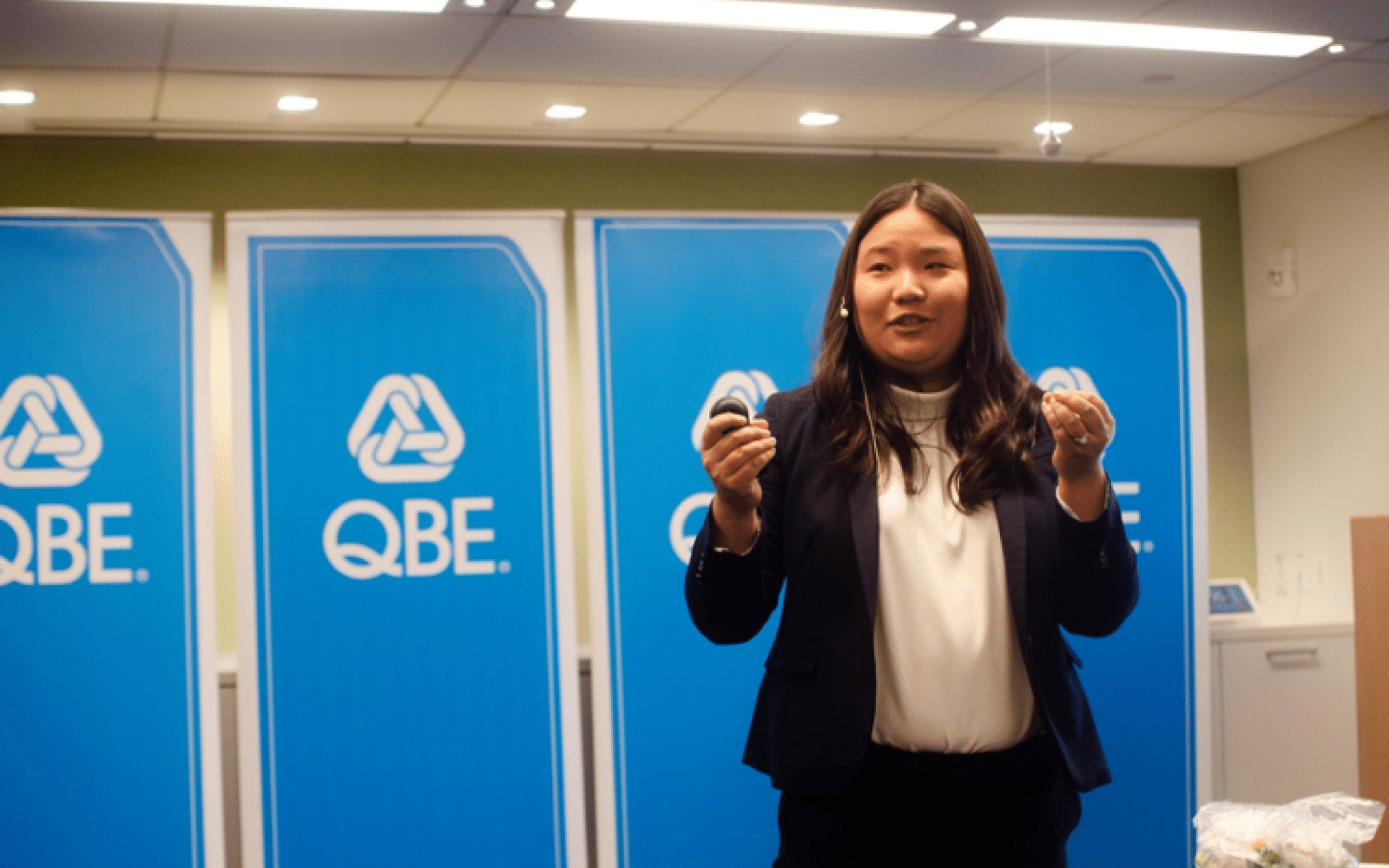
Second-prize winner Miranda Wang co-founded BioCellection, an organization that recycles “unrecyclable” plastics, with her longtime friend, Jeanny Yao, after the two became passionate about the problem in eighth grade. Touring a waste transfer station in Canada, Miranda was inspired to create a science fair project using biotechnology to address the problem of plastic waste.
The two continued working on their project — which used bacteria to break down plastic — in college, but realized that the idea could not be scaled. However, the chemistry used by the bacteria, they discovered, could be scaled.
Over several years, they invented a process, optimized it in a lab, and received validation from an engineering firm. Now a team of 11 based in Silicon Valley, “we intend to put [the prize] money towards scaling our technology,” Miranda said.
Demand for plastic recycling solutions has skyrocketed, due, in part, to fact that the U.S. no longer exports its plastic waste to China. Yet while many start-ups are innovating solutions, BioCellection’s unique molecular process puts the innovation in a separate category.
“We’re the first organization that actually uses city trash,” Miranda explained. “We’re not using clean plastics, we’re using plastics from households and commercial waste that is not recyclable and we turn them into fully circular materials and chemicals.” The process results in virgin-quality plastics that can be used as building blocks to manufacture a host of products.
Currently just nine percent of plastics are recycled globally, while 91% end up in landfills, incinerators, or as marine debris. “At this current rate there will be more plastics than fish by the year 2050,” she said. The company’s market-driven solution prevents plastics from entering the environment in the first place.
“The very mechanism of our business is doing good and taking the pollution and turning it into valuable materials. The fact that the judges saw that and are willing to support us in the scale up means a lot to us,” Miranda said.
A different kind of company
The teams from Drugviu and BioCellection both emphasized that profit and social impact are inextricably connected in their companies.
Melanie said that she has always believed that revenue and social impact are not mutually exclusive, and now she sees social impact working “in tandem” with business opportunity. “We’re definitely talking about our impact, but it’s always in alignment with the growth of our revenue,” she explained.
“People talk a lot about purpose, but you don’t actually need to work on adding purpose into your organization if your organization is created to solve a specific problem. You have to fall in love with a problem and to understand the problem, to be versatile in how you create the solution,” Miranda said. “As long as your organization is truly anchored in a problem you won’t have an issue with purpose. [That] is really what the organizations of our generation is all about.”
Melanie shared that she has always wanted to improve lives at a “macro level.” “But in order to do that you really have to understand the micro and use that as an opportunity to understand what people want, understand what people need, and do it in a way that’s simple and approachable,” she explained. “You can make change and everyone’s benefiting from it.”
More than a competition
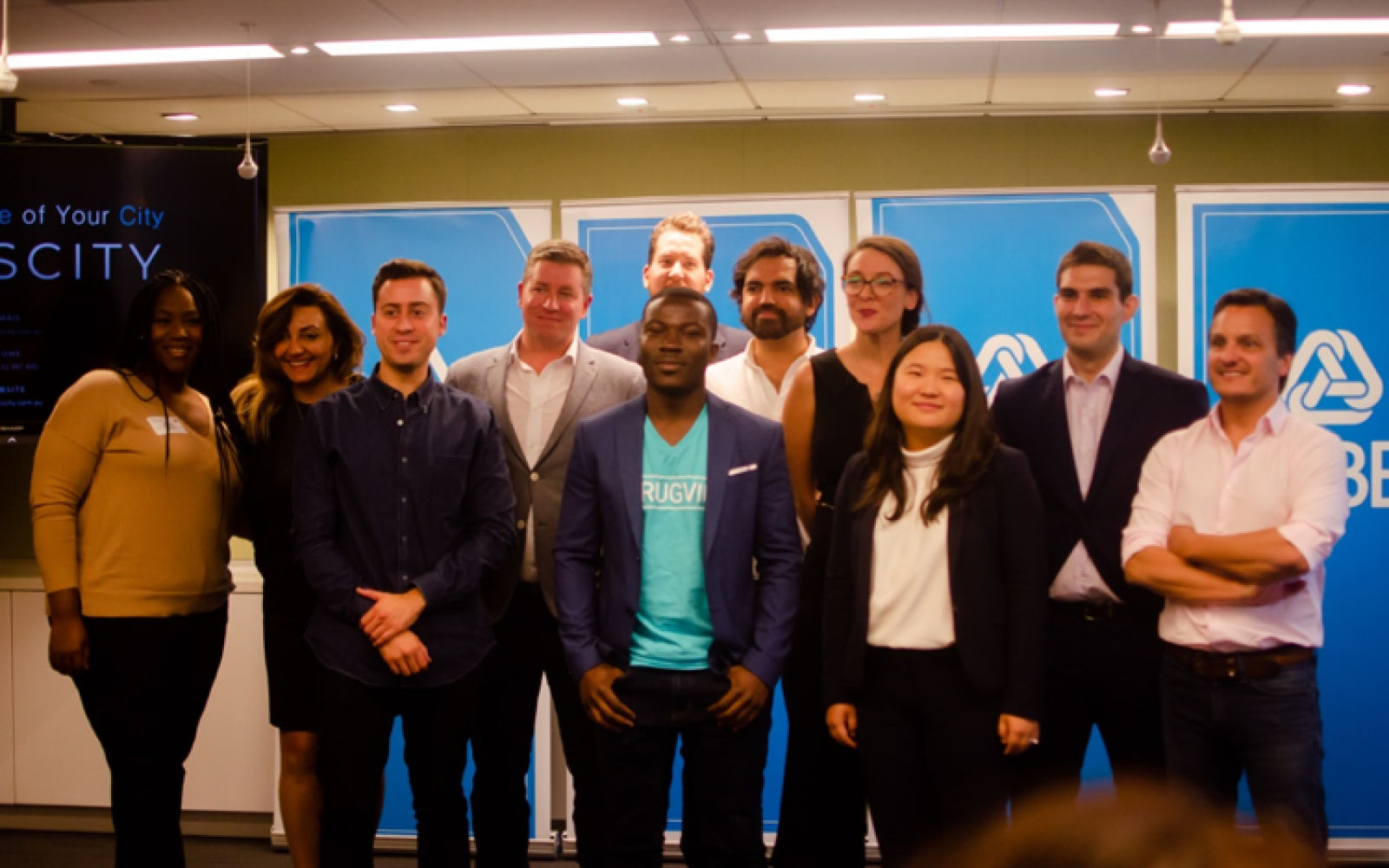
While the challenge culminated at the pitch event in NYC, the lengthy selection process already provided entrepreneurs with a chance to learn about, and comment on, other entries on the open submission platform. “That was a very innovative approach to a challenge,” Miranda said.
“Bringing 10 finalists here and having everybody have face-time.. that was just really, really educational,” she added. “The fact that large corporates like QBE are looking at [social impact] serves as a really good role model for the corporate world and [illustrates] the fact that everyone, anyone, can have a role to play in this.”
At the event, innovators engaged with each other and the teams from QBE and Ashoka. Truett Tate, Chairman of the Board at QBE North America, gave a talk on “Just Capitalism” and conversed with innovators individually.
“The invitation to participate today was a unique experience,” said Beto, co-founder of the tech platform Civlo. “I'm so grateful for the opportunity.”
Congratulations to Drugviu, BioCellection, and all of the finalists for their impressive innovations to make cities more safe, sustainable and equitable. Read more about the other finalists — SensCity, ODN, Dox, Arqlite, Exergy, Citysense, OmegaGrid, and Civlo— here.
